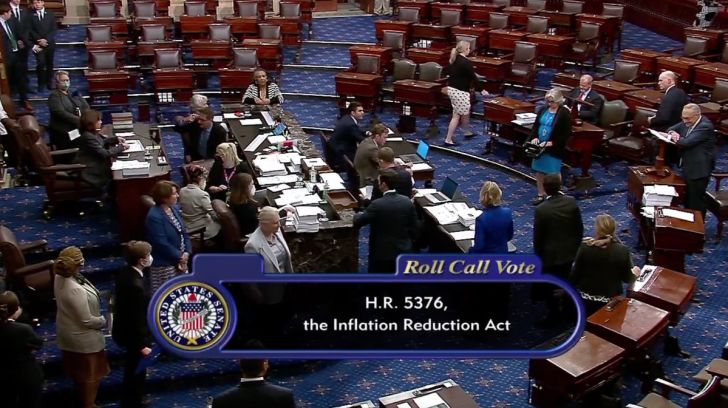Good Morning Everyone,
Power projection is a concept that I have discussed before in depth - but if you are not familiar with it, I suggest reviewing in the letter linked below to have a thorough understanding of the concept and its significance.
You can find it here:
The concept of power projection was first introduced to me by Jason Lowery who is a member of the US Space Force and is completing his thesis at MIT on Bitcoin.
Jason is absolutely brilliant. He has been sharing snippets from his thesis online for feedback and proof reading. He shared one that really caught my attention, and I thought I would share it with you here.
Here is the piece from Jason’s Thesis:
“5.2 To Test if Someone doesn't Understand Bitcoin, Ask for their Opinion about its Energy Usage
I argue it's impossible to fully appreciate the strategic significance of Bitcoin without understanding the fundamental, systemic implications of hashing. People's misunderstanding of hashing and, more generally speaking, the primary value-delivered function of power projection, shows clearly in data. Throughout coding, I repeatedly observed respected technical experts across multiple disciplines illustrate a surprising lack of understanding of the purpose of hashing or how it's designed to solve a very precise systemic security flaw that no other popular protocol has adequately solved. Their ignorance most commonly manifests itself in the form of two arguments: (1) Bitcoin's hashing infrastructure should strive to decrease its energy consumption, (2) Bitcoin's hashing industry should strive to become more efficient.
To address the first argument regarding decreasing energy consumption, now that the reader understands the virtue of brute force power competitions, we can understand why encouraging a hashing infrastructure to project less power is functionally equivalent to encouraging a military to project less power. This is a ridiculous proposition that illustrates a gross misunderstanding of the primary value-delivered function of hashing. It should be obvious to the reader why it's not in any user's rational best interest to advocate for weaker military defense at a higher price. Yet, that is precisely what people do when advocating for Bitcoin to lower energy expenditure while simultaneously hoping for a higher valuation (higher valuation directly translates to higher hash defense infrastructure budget due to block subsidies and transaction fees).
As anyone who understands power projection protocols like hashing knows, the more energy intensive a blockchain's respective hashing defense industry becomes, the more severe the real-world sunken and opportunity cost is required to systemically exploit its consensus rules. Thus, higher energy expenditure improves security. Users of hash-secured blockchains should therefore encourage it to use more energy and require increasingly more expensive hashing infrastructure - because that is precisely what deters belligerents from attacking. The only rational response from someone who understands Bitcoin's security protocol is "Bitcoin needs to use more energy.”
To address the second argument regarding increasing hash rate efficiency, it should first be noted that the more appropriate way to measure the security level of hash-secured blockchains at scale is to measure how much energy and infrastructure backs its hashing apparatus, rather than focusing exclusively on the hash rate itself. One should be concerned about how much real-world power is dedicated to defending the blockchain through its hashing protocol. This is because real-world energy expenditure and sacrifice is what actually deters real-world belligerents from exploiting the blockchain's consensus rules - not hash rate. Said differently, the attacker is afraid of the financial harm that would be caused by the immense sunken and opportunity cost of attacking the network, which is derived from the fixed and marginal costs of the infrastructure and energy behind the hash rate, not the hash rate itself. So why the obsession with hash rate? It's simply an easier proxy metric to quantify the blockchain's real-world power output and infrastructure cost. Everybody knows there's a direct, positive correlation between the two, and it would be extremely difficult to continually keep precise track of the variable cost of energy and infrastructure dedicated to a blockchain's hashing protocol.
Satoshi clearly understood that keeping fixed and marginal costs of hashing infrastructure and energy expenditure prohibitively high was the key to deterrence, because Bitcoin has software in place to throttle the difficulty of its hashing competition to ensure that it remains sufficiently cost prohibitive in the real world to perform an attack regardless of the system's combined hash rate. This point cannot be emphasized enough: The protocol is designed to offset increasing hash rate efficiency by hiking the difficulty level of its hashing competition ad infinitum. It intentionally creates a permanent headwind that causes hashing infrastructure of any size or efficiency to lose its competitive edge. Consequently, no amount of improvement in total hash rate or hash rate efficiency should be expected to reduce real-world difficulty. Building faster, more efficient, cheaper computers and finding cheaper sources of energy to improve the operational effectiveness of hashing should not be expected to decrease the total real-world energy expenditure and infrastructure cost of defending Bitcoin. No amount of efficiency is going to make it easier for the hashing industry to chase an infinite horizon it was programmed to never reach. A past total hash rate of 10 TH/s will be irrelevantly closer to infinity TH/s than a future hash rate of 1,000,000,000,000,000 TH/s; what matters is how much energy and infrastructure it the hashing industry uses, and the more the better.”
This is some high level deep knowledge. Super powerful, and surprising how few people seem to truly understand this.
We want the bitcoin network to use more energy. The more energy the better.
This does not mean we want the energy consumed to negatively impact the environment. Those two things should not be conflated; but in order to secure a global monetary network for the planet, and for the network to be truly adequate to full-fill its promise, it requires the consumption of energy to properly secure it, and be capable of serving this purpose. Without the tether of energy use to the real world, it will simply never be possible, as the security model would be in adequate leading to a lack of trust due to its known lack of security and we would remain trapped in the legacy paradigm of having to trust predatory central bankers.
This new paradigm will incentivise the sourcing of cheaper and cleaner energy over time, and it is this element of the bitcoin network that will lead to an abundant energy future for human civilization built upon the most secure and anti-fragile computing network known to man. All incentivised by a software protocol designed 13 years ago by an anonymous person or group.
Simply incredible!
Wishing you all well. I’ll talk to you tomorrow.
AK
“If you don't believe it or don't get it, I don't have the time to try to convince you, sorry.”
- Satoshi Nakamoto, 2010











